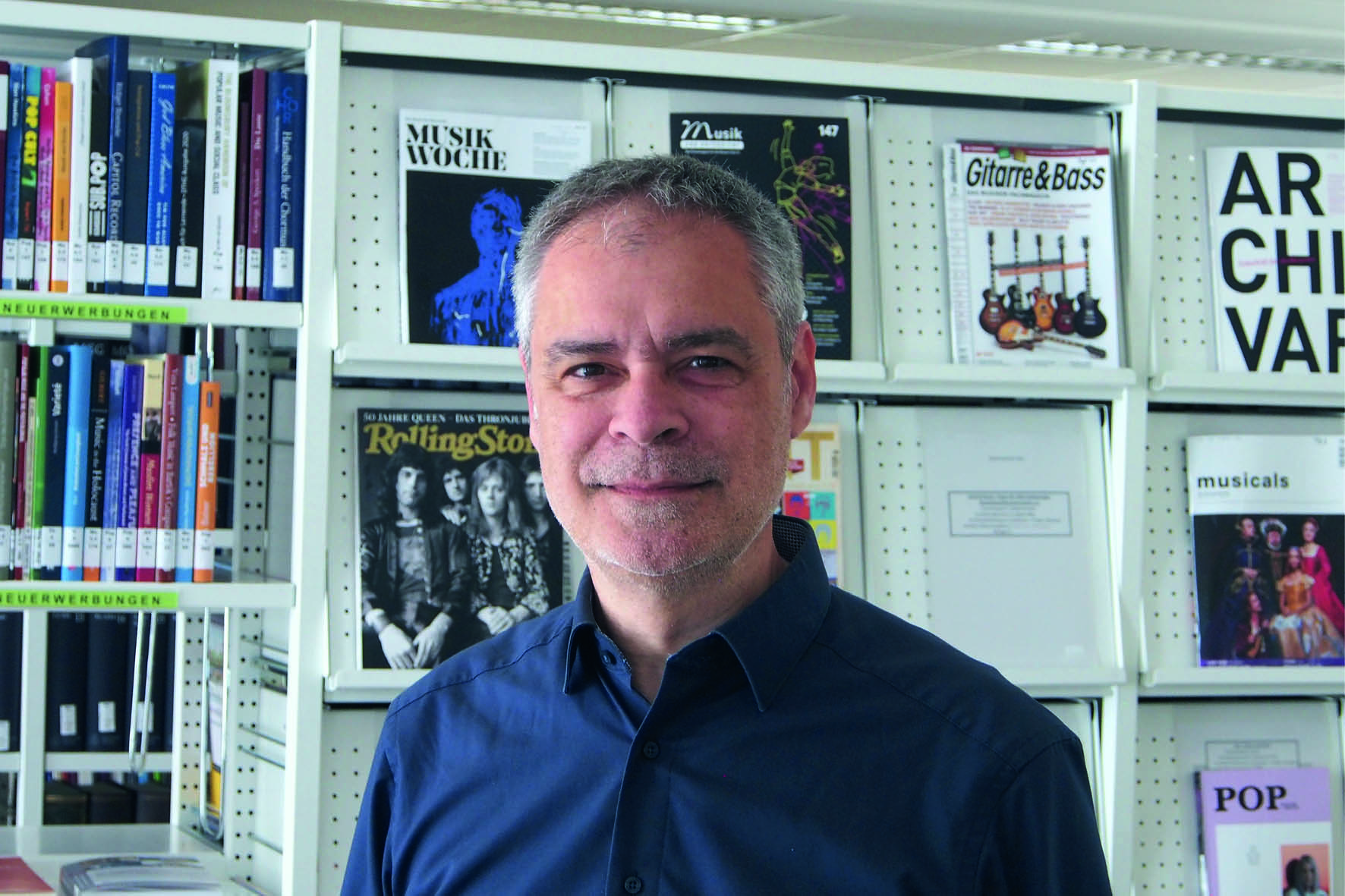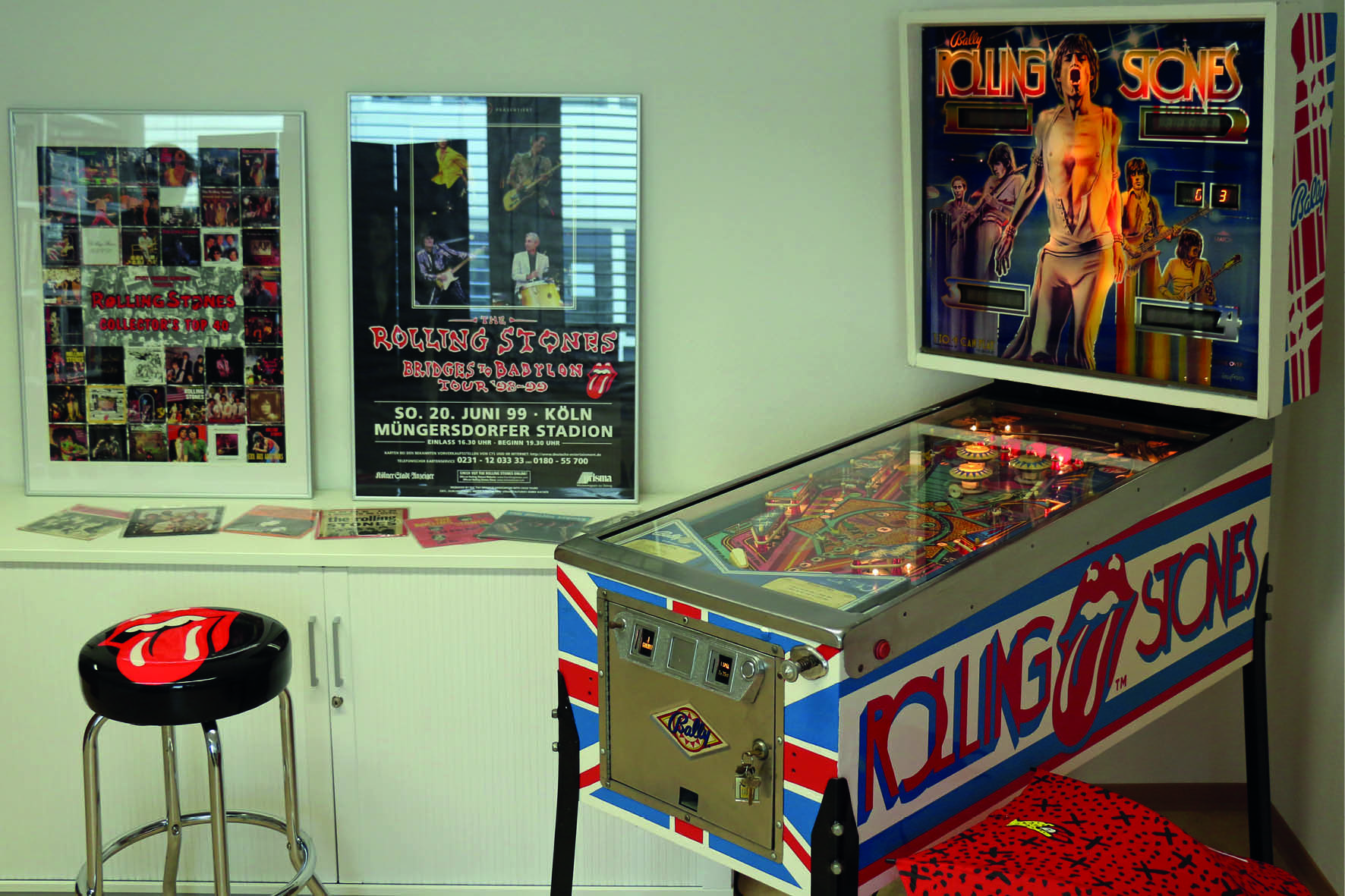“Our strength is in analysing pop culture and the social questions it deals with”
Freiburg, Apr 25, 2024
Professor Michael Fischer has been the managing director of the Centre for Popular Culture and Music (ZPKM) at the University of Freiburg since 2014. Since 2021 he has also held an honorary professorship in history and theory of popular music at the Freiburg University of Music.

Prof. Dr. Dr. Michael Fischer, Photo: Johannes Müske
The Centre of Popular Culture and Music (ZPKM) was founded ten years ago. It arose from the German folk song archive which was established in 1914. What led to this move?
With the ZPKM we wanted to include more than just folk song and extend the academic focus. Initially, we were thinking of what most people regard as popular music, that is pop and rock since the 1950s. This change of perspective can also be seen in the German musicals archive which we had already been working on since 2010 – so back when the German folk song archive still existed. That was a first step in reforming the research, collections and teaching at our institution. But this development began back before the connection with the university.

The ZPKM audio equipment collection includes recording and playback devices from the last hundred years. Photo: Klaus Polkowski
You linked up with the university in 2014 when the ZPKM was established as an institution at the University of Freiburg. How has this connection affected your work?
We wanted to move closer to the university research, and – what really matters to me – to academic teaching as well. Students needed to be more deeply involved and also be taught at the centre itself.
Have you managed to achieve these goals over the past ten years?
Yes, I definitely believe so. We cooperate, share content, with media culture studies, empirical cultural studies, musicology and also with the Freiburg University of Music. Together the two universities run the Freiburg Centre for Music Research and Teaching. This networks all the music-related institutes in Freiburg, which benefits all the partners. We’ve created a structure in which students can engage with popular culture and music in an interdisciplinary framework. That’s a strength of our centre, which was enhanced by the connection with the university.
There were those who took a critical view of the ZPKM and said it would diminish folk song and instead focus more on the commercial.
If you want to criticise what is commercial, then you have to understand how the music industry operates. In our work we also want to analyse the role popular music plays in different societies and the issues it deals with. Whether it’s the popular music of the Early Modern era, popular song of the 1920s or hip-hop in the 2000s, I can always pose similar questions: How is a society constituted? How is this represented musically? What relationship to sexuality can I deduce from popular music? How are gender roles defined or how do social environments differentiate themselves? Being able to ask these questions is a strength of our centre.
You’re speaking about the historical perspective. But pop culture can also be analysed with regard to hotly-discussed contemporary themes.
Exactly. And it may now be that these discourses were once reflected in folk songs. But to analyse these discourses today, I naturally have to consider other genres. Nowadays, folk songs tend to be marginal to music culture, not central.

The Archive for Pop Music Cultures is home to, among other things, the Reinhold Karpp Rolling Stones Collection. Photo: Sandra Meyndt
So incorporating the folk song archive into ZPKM was inevitable in view of social changes?
Yes. At the same time, it was not and is not about replacing one musical genre with another, but expanding the subject of our research. We still think about the venerable German folk song archive with its historically unique collections. And we have succeeded in obtaining a national preservation order for them. This is unique among the university collections and emphasises the cultural significance of the archive.
What part does digitalisation play in the field of archival work?
In recent years we’ve made intensive efforts and now have a large digital library with thousands of objects, and we want to continue expanding this. On the one hand, we want to make the digitalised objects available for research, on the other, digitalisation also helps with conservation.
Besides research, you want to make the work of the ZPKM available to citizens. How will you do this?
We have three online encyclopaedias: since 2005 there’s been the historical/critical folk song encyclopaedia; then the popular song encyclopaedia, and most recently the musicals encyclopaedia with over 1,300 entries. We want our online encyclopaedias to serve both a specialist audience, but explicitly also members of the public who are interested.
What topics are you currently researching at ZPKM?
Besides our series of publications, our research is strongly tied in with symposia. This year we are dealing with religion in popular musical theatre and with the phenomenon of clubs dying out – which is the effect of a change in urban structures from an economic and social perspective − and how this is reflected in the change in club culture.
How do you see the future of ZPKM?
My vision is that the ZPKM will become established as the leading centre in the German research landscape for popular culture and music and will have sufficient resources to realise this objective long-term.
More information: https://www.zpkm.uni-freiburg.de
Contact:
Prof. Dr. Dr. Michael Fischer
Executive Director
Zentrum für Populäre Kultur und Musik
michael.fischer@zpkm.uni-freiburg.de
Tel. +49 (0) 761 / 203-95281

